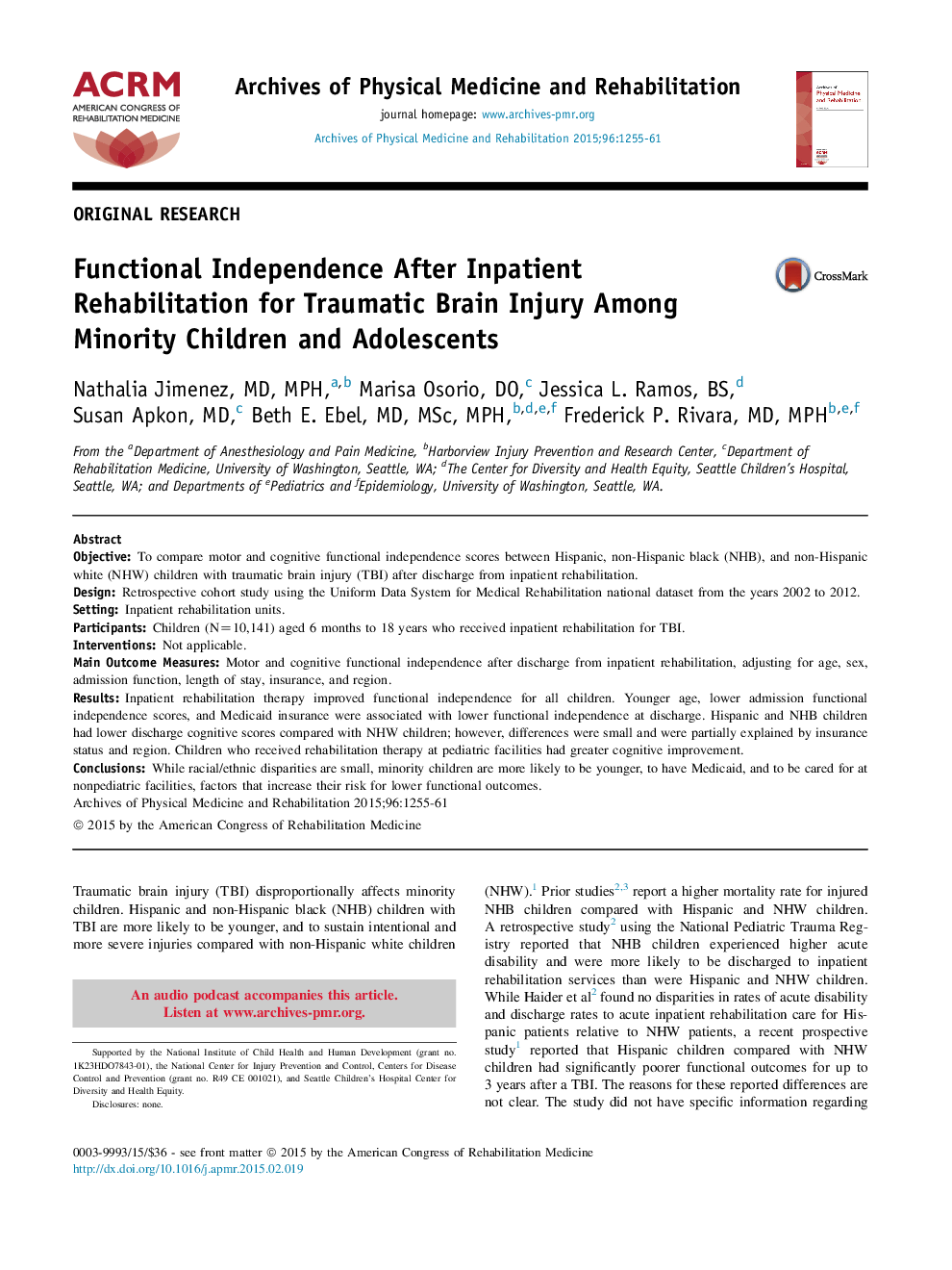| Article ID | Journal | Published Year | Pages | File Type |
|---|---|---|---|---|
| 3448107 | Archives of Physical Medicine and Rehabilitation | 2015 | 7 Pages |
ObjectiveTo compare motor and cognitive functional independence scores between Hispanic, non-Hispanic black (NHB), and non-Hispanic white (NHW) children with traumatic brain injury (TBI) after discharge from inpatient rehabilitation.DesignRetrospective cohort study using the Uniform Data System for Medical Rehabilitation national dataset from the years 2002 to 2012.SettingInpatient rehabilitation units.ParticipantsChildren (N=10,141) aged 6 months to 18 years who received inpatient rehabilitation for TBI.InterventionsNot applicable.Main Outcome MeasuresMotor and cognitive functional independence after discharge from inpatient rehabilitation, adjusting for age, sex, admission function, length of stay, insurance, and region.ResultsInpatient rehabilitation therapy improved functional independence for all children. Younger age, lower admission functional independence scores, and Medicaid insurance were associated with lower functional independence at discharge. Hispanic and NHB children had lower discharge cognitive scores compared with NHW children; however, differences were small and were partially explained by insurance status and region. Children who received rehabilitation therapy at pediatric facilities had greater cognitive improvement.ConclusionsWhile racial/ethnic disparities are small, minority children are more likely to be younger, to have Medicaid, and to be cared for at nonpediatric facilities, factors that increase their risk for lower functional outcomes.
